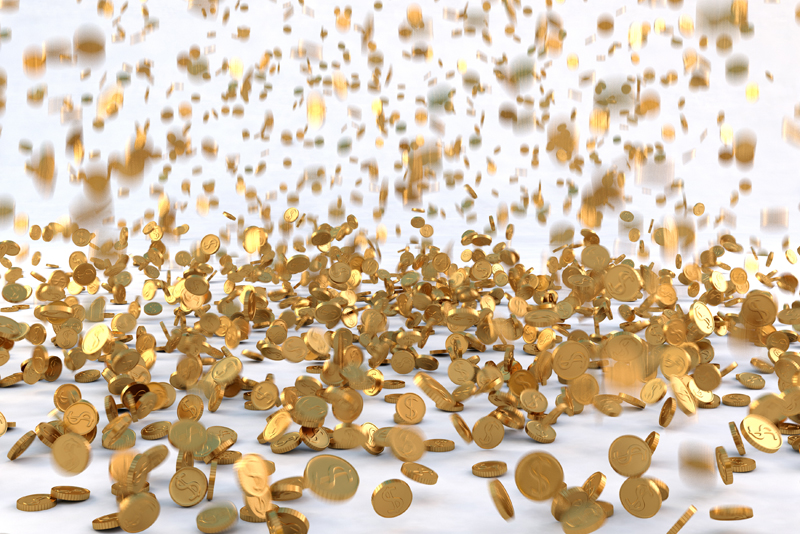Politicians Afraid Of The Gold Standard

While “gold” may be a hot buzz word in financial circles, it can’t be said to be the same in political circles. While Ron Paul has championed the idea of a new gold standard, the idea has hasn’t been eagerly adopted by either the Republicans or the Democrats. While Ron Paul has lost his bid to run as the Republican Presidential Nominee to Mitt Romney, his calls for an audit of the Federal reserve and a restoration of a gold standard in the United States has quietly been written into the Republican Party’s platform.
As adopted August 28, 2012 in Tampa, Florida, the platform declared in its “Inflation and Federal Reserve” section, “The first step to increasing transparency and accountability is through an annual audit of the Federal Reserve’s activities. A few lines further along, the platform says, “President Reagan shortly after his inauguration, established a commission to consider the feasibility of a metallic base for U.S. currency. The commission advised against such a move. Now three decades later, as we face the task of cleaning up the wreckage of the current Administration’s policies, we propose a similar commission to investigate possible ways to set a fixed value for the dollar.”
The vagueness may be due to the virtually unanimous opposition to the idea of a gold standard among most economists. Ironically the name of the Reagan-appointed 17-member commission referred to by the Republican Party’s platform was known as the U.S. Gold Commission in which Rep. Ron Paul served.
The United States has been off of a gold standard for many years now. The present “Federal Reserve Notes” that circulate today are what is known as “fiat” currency. Fiat currency is paper money that is not backed by anything. Its only value is what the government issuing it claims it has. A Federal reserve Note has no more “real” value than “Monopoly Money” used in the popular board game “Monopoly.”
It only has any value do to the claims of the U.S. government and the public’s confidence in our government. Once that public trust is totally eroded, the U.S. Dollar will be virtually worthless. Historically no fiat currency has ever remained stable. Eventually the government prints up too much of their unbacked currency and its value collapses. There are numerous examples in the 20th century alone.
The Post World war I government of Germany experienced hyperinflation due to the overprinting of their fiat currency. Likewise various South American countries experienced the same hyperinflation and collapse of their currencies through the 1970’s and 1980’s. More recently the country formerly known as Rhodesia has fell victim to hyperinflation due to the overprinting of their fiat currency. Only time will tell when our own U.S. Dollar finally collapses.
As adopted August 28, 2012 in Tampa, Florida, the platform declared in its “Inflation and Federal Reserve” section, “The first step to increasing transparency and accountability is through an annual audit of the Federal Reserve’s activities. A few lines further along, the platform says, “President Reagan shortly after his inauguration, established a commission to consider the feasibility of a metallic base for U.S. currency. The commission advised against such a move. Now three decades later, as we face the task of cleaning up the wreckage of the current Administration’s policies, we propose a similar commission to investigate possible ways to set a fixed value for the dollar.”
The vagueness may be due to the virtually unanimous opposition to the idea of a gold standard among most economists. Ironically the name of the Reagan-appointed 17-member commission referred to by the Republican Party’s platform was known as the U.S. Gold Commission in which Rep. Ron Paul served.
The United States has been off of a gold standard for many years now. The present “Federal Reserve Notes” that circulate today are what is known as “fiat” currency. Fiat currency is paper money that is not backed by anything. Its only value is what the government issuing it claims it has. A Federal reserve Note has no more “real” value than “Monopoly Money” used in the popular board game “Monopoly.”
It only has any value do to the claims of the U.S. government and the public’s confidence in our government. Once that public trust is totally eroded, the U.S. Dollar will be virtually worthless. Historically no fiat currency has ever remained stable. Eventually the government prints up too much of their unbacked currency and its value collapses. There are numerous examples in the 20th century alone.
The Post World war I government of Germany experienced hyperinflation due to the overprinting of their fiat currency. Likewise various South American countries experienced the same hyperinflation and collapse of their currencies through the 1970’s and 1980’s. More recently the country formerly known as Rhodesia has fell victim to hyperinflation due to the overprinting of their fiat currency. Only time will tell when our own U.S. Dollar finally collapses.

Related Articles
Editor's Picks Articles
Top Ten Articles
Previous Features
Site Map
Content copyright © 2023 by Gary Eggleston. All rights reserved.
This content was written by Gary Eggleston. If you wish to use this content in any manner, you need written permission. Contact Gary Eggleston for details.


